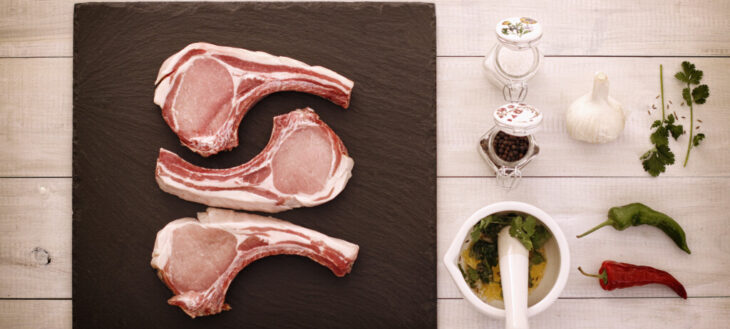Pig farming has existed in the Canary Islands since pre-Hispanic times. However, the Canarian Black Pig has been created using European pig breeds, primarily breeds from the Iberian Peninsula and England.
This animal is tied to rural life and it was common to find one or more being raised and fed by families for their own consumption. It was a natural waste disposal unit that would make good use of any organic leftovers.
Although it was difficult to find foodstuffs made from this animal in the market a few years ago, it has now become a staple part of the meat and deli counter and the quality of meat is highly prized by local residents, and certain butchers and restaurants across the island.
This breed was officially recognised at national level when it was included in legislation under the Royal Decree ‘Real Decreto 1682/1997, de 7 de noviembre’, thus updating the Official Catalogue of Livestock Breeds of Spain. It was listed as the Canarian Black Pig (Cerdo Negro Canario) and awarded special protection as there were only a limited number of specimens.
Recently, Los Realejos has become the focal point for the breeding of the Canarian Black Pig thanks to the efforts made by a group of local farmers who continue to dedicate themselves to the continuation of this breed.
Did you know…?
- The symbolic figure of the cochineal seller or wandering peddler has all but disappeared in its most traditional sense, except in Los Realejos the emblematic home of this profession. It is a profession that is unique to Icod el Alto. Until the 1870s it was possible to see this figure crossing the hilltops towards the south of Tenerife, carrying his wears on horseback or donkeys that would carrying chestnut baskets, with enough space for 16 hogs or piglets. Every year in March the tradition is brought back to life on our hilltops.














